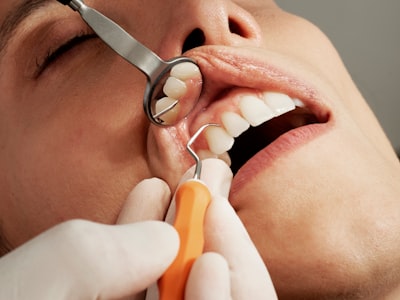Ensuring optimal oral health is crucial for overall well-being, yet the expenses tied to dental care can often be a concern. Fortunately, dental insurance helps alleviate this burden by offering coverage for a wide range of procedures. However, not all procedures are covered equally. The coverage provided by your plan for dental care services may vary depending on a variety of factors.
What Preventive Dental Procedures Might Insurance Cover? 
Preventive dental care serves as the foundation for preserving excellent oral health. Dental insurance plans typically cover routine procedures, as they focus on preventing dental problems before they arise. The following procedures may be considered preventive dental care:
- Routine check-ups and cleanings—Regular dental checkups and cleanings are vital for detecting dental issues early and preventing more significant problems down the road.
- X-rays—Dental X-rays are essential diagnostic tools that allow dentists to detect issues such as cavities, infections and bone loss that may not be visible during a visual examination.
- Fluoride treatments—Fluoride treatments help strengthen tooth enamel and prevent tooth decay. Some dental insurance plans cover fluoride treatments, especially for children, as part of preventive dental care.
- Sealants—Dental sealants are thin protective coatings applied to the chewing surfaces of molars to prevent decay. Sealants are often recommended for children and adolescents but can also benefit adults. Some insurance plans cover sealants for children, while coverage for adults may vary.
What Other Dental Procedures Might Insurance Cover?
Basic and major dental procedures typically involve more extensive treatment to address existing dental issues. Dental insurance may provide some coverage for these procedures; however, patients may be responsible for a portion of the costs through copayments, coinsurance or deductibles. While coverage will vary by policy, some basic procedures include the following:
- Fillings—Dental fillings are used to repair cavities and restore the structure of damaged teeth. Basic dental insurance plans may cover a significant portion of the cost of fillings, although patients may still be responsible for a copayment or coinsurance.
- Root canals—Root canal therapy is necessary to treat infected or inflamed tooth pulp. While dental insurance may cover root canals, patients may be required to pay a percentage of the cost, particularly for more complex procedures or if a specialist is involved.
- Extractions—Tooth extractions may be required for severely damaged or infected teeth that cannot be saved. Dental insurance may cover extractions, but patients may need to pay a portion of the cost depending on the complexity of the extraction.
Some major procedures include the following:
- Crowns—Dental crowns are tooth-shaped caps that are placed over damaged or weakened teeth to restore their strength and appearance. While dental insurance may cover a portion of the cost of crowns, patients may be responsible for a significant copayment or coinsurance.
- Bridges—Dental bridges are used to replace missing teeth by anchoring artificial teeth to adjacent natural teeth or dental implants. Dental insurance may cover a portion of the cost of bridges, but patients may still need to pay a substantial amount out of pocket.
- Dentures and implants—Dentures and dental implants are prosthetic devices used to replace missing teeth and restore oral function and aesthetics. While dental insurance may provide coverage for dentures and implants, patients may be responsible for a significant portion of the cost, particularly for more advanced implant procedures.
How Do I Know What My Plan Covers?
The specific treatments and services a dental insurance plan covers will vary by insurer and selected coverages. Likewise, so will the coverage limits and cost-sharing components (e.g., copayments).
Items that are covered will be outlined in the insurance policy paperwork; exceptions will typically be listed as well. Your Wimmer Insurance agent can help review your policy and explain if a procedure may be covered.
Dental Insurance in Detroit Lakes, MN
Understanding how dental procedures are categorized in terms of insurance coverage can help patients make informed decisions about their oral health care. By prioritizing preventive care and understanding their insurance benefits, individuals can maintain good oral health while minimizing out-of-pocket expenses. Contact Wimmer Insurance to review your dental insurance policy options.
This blog is intended for informational and educational use only. It is not exhaustive and should not be construed as legal advice. Please contact your insurance professional for further information.